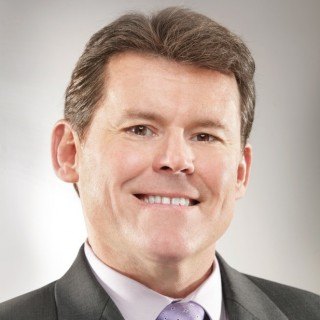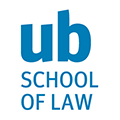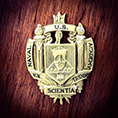Free Consultation: (864) 351-2468Tap to Call This Lawyer

Bernard Samuel Klosowski
Law Firm Partner
Badges
Claimed Lawyer ProfileQ&AResponsive Law
Biography
U.S. Naval Academy graduate; Commander, U.S. Navy; U.S. Patent Attorney: Electro-mechanical * Electrical * Software/Computers * Artificial Intelligence/Machine Learning * Automotive * Energy Systems * Medical Devices * Optics * other Intellectual Property and Related Business Issues and Litigation
Education
- University of Baltimore School of Law
- J.D. (1998) | Law
- -
- Honors: cum laude
-

- Naval War College
- other (1993) | Strategy & Tactices, Executive Decisionmaking
- -
- Attended Annapolis, MD satellite site
- Honors: 1993 Outstanding Student Nominee
-

- United States Naval Academy
- B.S. (1986) | general engineering
- -
- Commissioned as an officer in the U.S. Navy on May 21, 1986 and ordered to flight training.
- Honors: Commandant's List
- Activities: Color Guard, Bicycle Club
-

Professional Experience
- Law Firm Partner
- - Current
Publications
Articles & Publications
- IPlog
- Self
Speaking Engagements
- AIPF 2018 Annual Meeting, Chicago, IL
- Association of Intellectual Property Firms (AIPF)
- Moderator/Speaker: Taking the Long View on Patents - A Roundtable Perspective On Navigating Patent Protection
- Numerous Speaking Engagements
Certifications
- Registered United States Patent attorney
- U.S. Patent and Trademark Office
Professional Associations
- ASSOCIATION OF INTELLECTUAL PROPERTY FIRMS (AIPF)
- Member
- - Current
-

- South Carolina State Bar # 69287
- Member
- - Current
-

- Carolina Patent Trademark Copyright Law Association
- Member
- - Current
-

- American Intellectual Property Law Association
- Member of various AIPLA practice groups
- - Current
-

- District of Columbia Bar
- Member
- - Current
-

Jurisdictions Admitted to Practice
- District of Columbia
- District of Columbia Bar
-

- Florida
-

- Maryland
-

- South Carolina
-

- USPTO
-

- 4th Circuit
-

- Federal Circuit
-

Fees
-
Free Consultation
I am happy to speak with a potential client about a legal question generally, usually 15-20 minutes. But a signed engagement letter and retainer is necessary to establish an attorney-client relationship in order to discuss specific facts and provide advice. -
Credit Cards Accepted
We encourage use of our Law Pay link to submit credit/debit card information. We do not store personal credit/debit card data, so your information is confidential and secure. -
Rates, Retainers and Additional Information
I am willing to discuss alternative fee arrangements.
Practice Areas
- Patents
- Patent Appeals, Patent Litigation, Patent Prosecution
- Trademarks
- Trademark Litigation, Trademark Registration
- Intellectual Property
- Business Law
- Business Contracts, Business Dissolution, Business Finance, Business Formation, Business Litigation, Franchising, Mergers & Acquisitions, Partnership & Shareholder Disputes
- Entertainment & Sports Law
- Communications & Internet Law
- Internet Law, Media & Advertising, Telecommunications Law
- Bankruptcy
- Chapter 11 Bankruptcy, Chapter 13 Bankruptcy, Chapter 7 Bankruptcy, Debt Relief
Additional Practice Areas
- Computer Technology-Software
- Copyrights
- Copyright
- Trade Secrets
- Franchise issues; written legal opinions in all practice areas; IPR/PGR proceedi
Languages
- French: Written
- German: Written
Legal Answers
- Q. When I consult with an attorney that specializes in patents, trademarks, etc . Do I need to protect my idea in advance?
- A: Not to speak with an IP attorney, and for at least the reasons stated below, most attorneys won't sign a "confidentiality agreement" with a prospective client as it's unnecessary and not required and would be highly unusual.
IP attorneys, like all attorneys, are obligated under professional rules of responsibility and ethics rules to maintain confidentiality, even regarding an initial consultation. See, e.g., South Carolina Rules of Professional Conduct, Rule 1.18(b) ("Even when no client-lawyer relationship ensues, a lawyer who has had discussions with a prospective client shall not use or reveal information learned in the consultation...."). The confidentiality ... Read More
- Q. What sort of IP is need for a project that involves a combination medical device with drug delivery?
- A: In the near term, a provisional or utility patent application might be worth considering, keeping in mind that the U.S. is now a "first inventor to file" system (time is not on the inventor's side like it once was). Whether the device, the drug, or a combination of the device and drug is patentable should be discussed with a patent attorney. If it's not patentable, perhaps some of its "secret sauce" can be protected as a trade secret. If there are marketing materials or user manuals, those might be subject to copyright protections.
In the longer term, a trademark for the commercial product might be considered if the inventor also intends on making and selling ... Read More
- Q. Is Patent number: 4728812 still in effect. as of 01/29/2021 ?
- A: No, a "4 million series" patent would be from the 1980s and probably expired years ago. Setting aside continuation applications and other theoretical considerations, U.S. Pat. No. 4728812 likely expired in the early to mid 2000's, assuming that its "maintenance fees" were paid (if not, the patent would not even have lasted its full term and would have expired in the early 1990s).
U.S. patents last 20 years from their filing dates (or from the earliest filing date upon which a patent application makes a claim of priority), which generally amounts to about 17 years of patent life after issuance. However, patents filed before June 8, 1995 lasted the longer of 20 years ... Read More
Social Media
Contact & Map

